Gastroenterology Services
Gastroenterology is the study of the normal function and diseases of the esophagus, stomach, small intestine, colon and rectum, pancreas, gallbladder, bile ducts and liver. It involves a detailed understanding of the normal action (physiology) of the gastrointestinal organs including the movement of material through the stomach and intestine (motility), the digestion and absorption of nutrients into the body, removal of waste from the system, and the function of the liver as a digestive organ. It includes common and important conditions such as colon polyps and cancer, hepatitis, gastroesophageal reflux (heartburn), peptic ulcer disease, colitis, gallbladder and biliary tract disease, nutritional problems, Irritable Bowel Syndrome (IBS), and pancreatitis. In essence, all normal activity and disease of the digestive organs is part of the study of Gastroenterology.
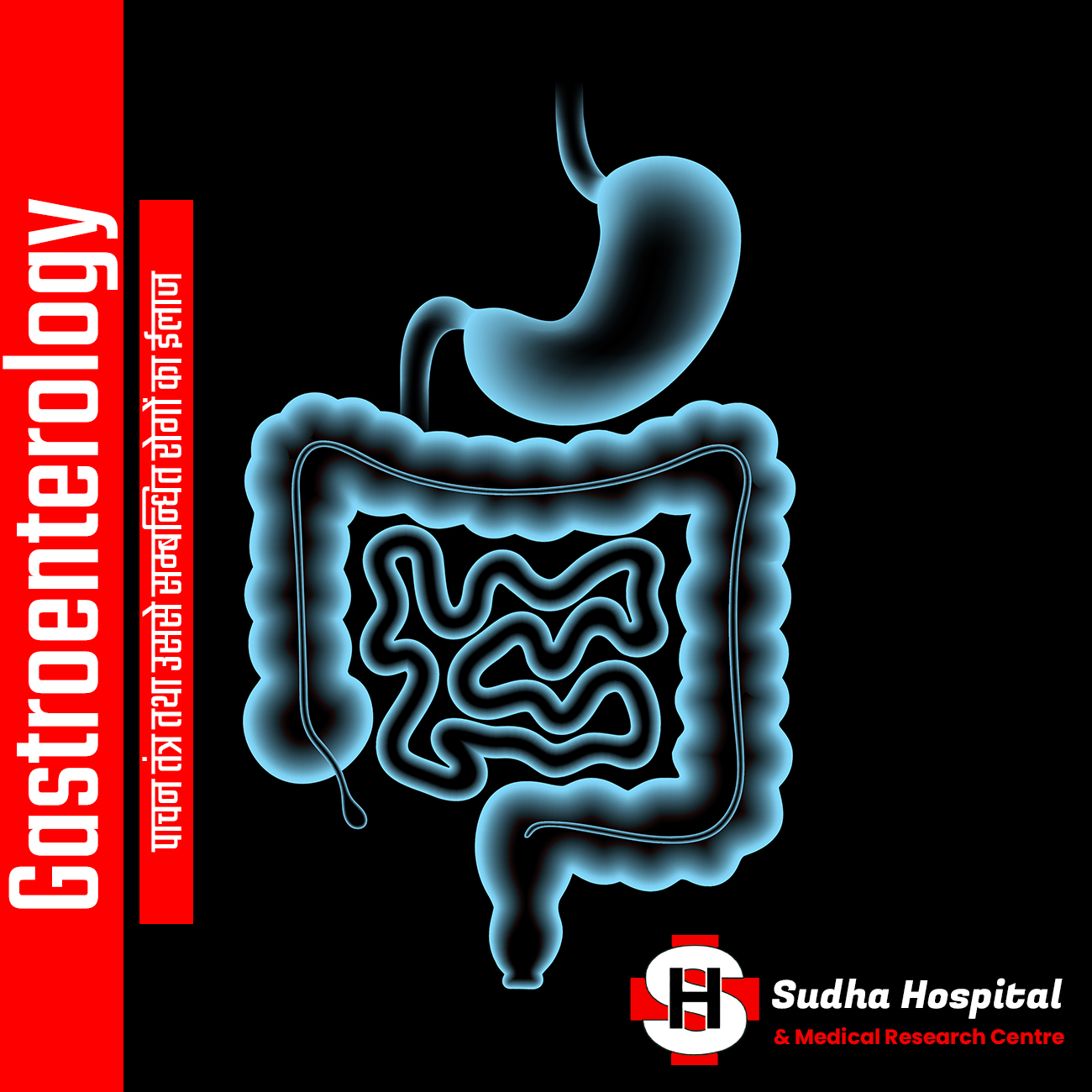

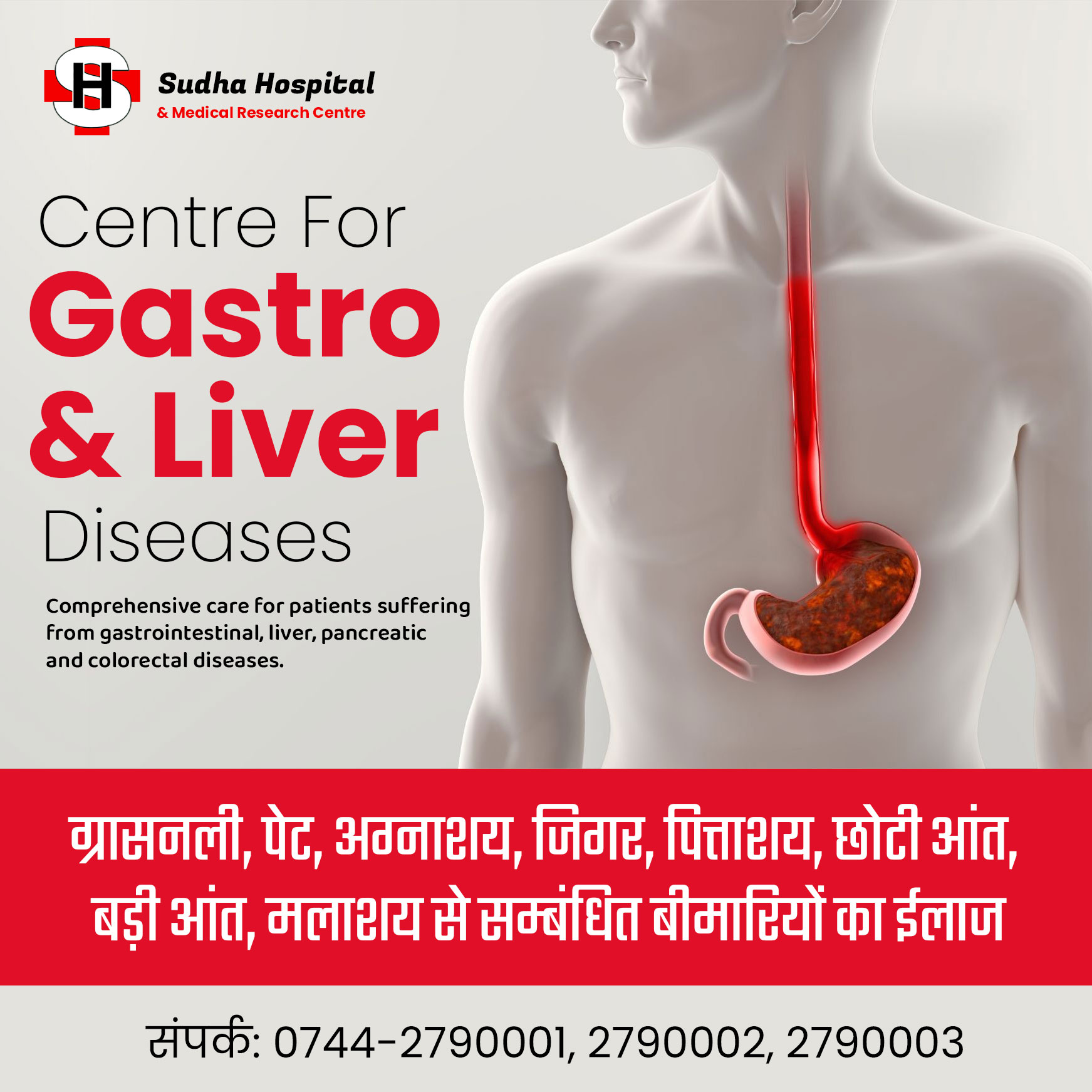
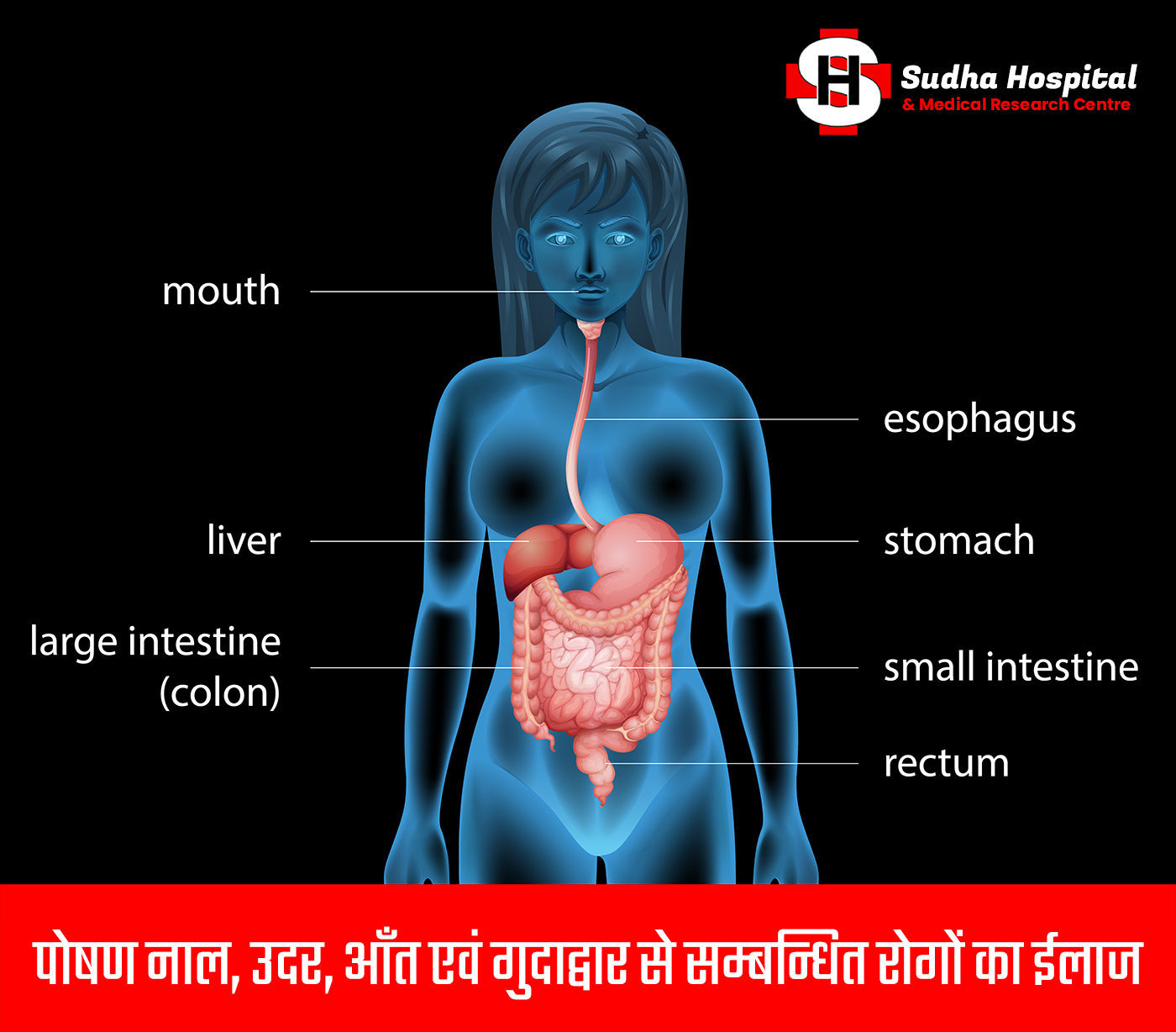
Who is in the need?
Gastroenterology is really a subspecialty of Internal Medicine. Frequently, a Gastroenterologist is called in cases of abdominal pain, rectal bleeding, or change in bowel habits when the diagnosis is unclear or where specialized diagnostic procedures are necessary. A Gastroenterologist does not perform surgery. His work is limited to diagnosis and medical treatment. However, under the broad classification of surgery, Gastroenterologists do perform such procedures as liver biopsy and endoscopic ("scope") examinations of the esophagus, stomach, small and large bowel. Also, the Gastroenterologist frequently works with surgeons before and after an operation in helping select the best operation for a particular patient, and in providing follow-up care relevant to the particular digestive disorder.
Available Gastro Treatments

Abdominal Pain, Abnormal Xray Findings
Colon Cancer, Colon Polyps, Endoscopy, Colonoscopy
Colon Screening Exams, Constipation
Crohn's Disease, Diarrhea
Difficulty Swallowing, Diverticulosis
Esophageal Reflux, Gastritis
GERD, Heartburn, Hemorrhoids
Hepatitis, Hiatal Hernia, Indigestion
Irritable Bowel Syndrome
Jaundice, Liver Disease
Malabsorption, Nausea Diarrhea
Post-Operative Colon Tests
Rectal Bleeding
Spastic Colon
Ulcers, Ulcerative Colitis
Unexplained Weight Loss, Vomiting
Department Of Internal Medicine
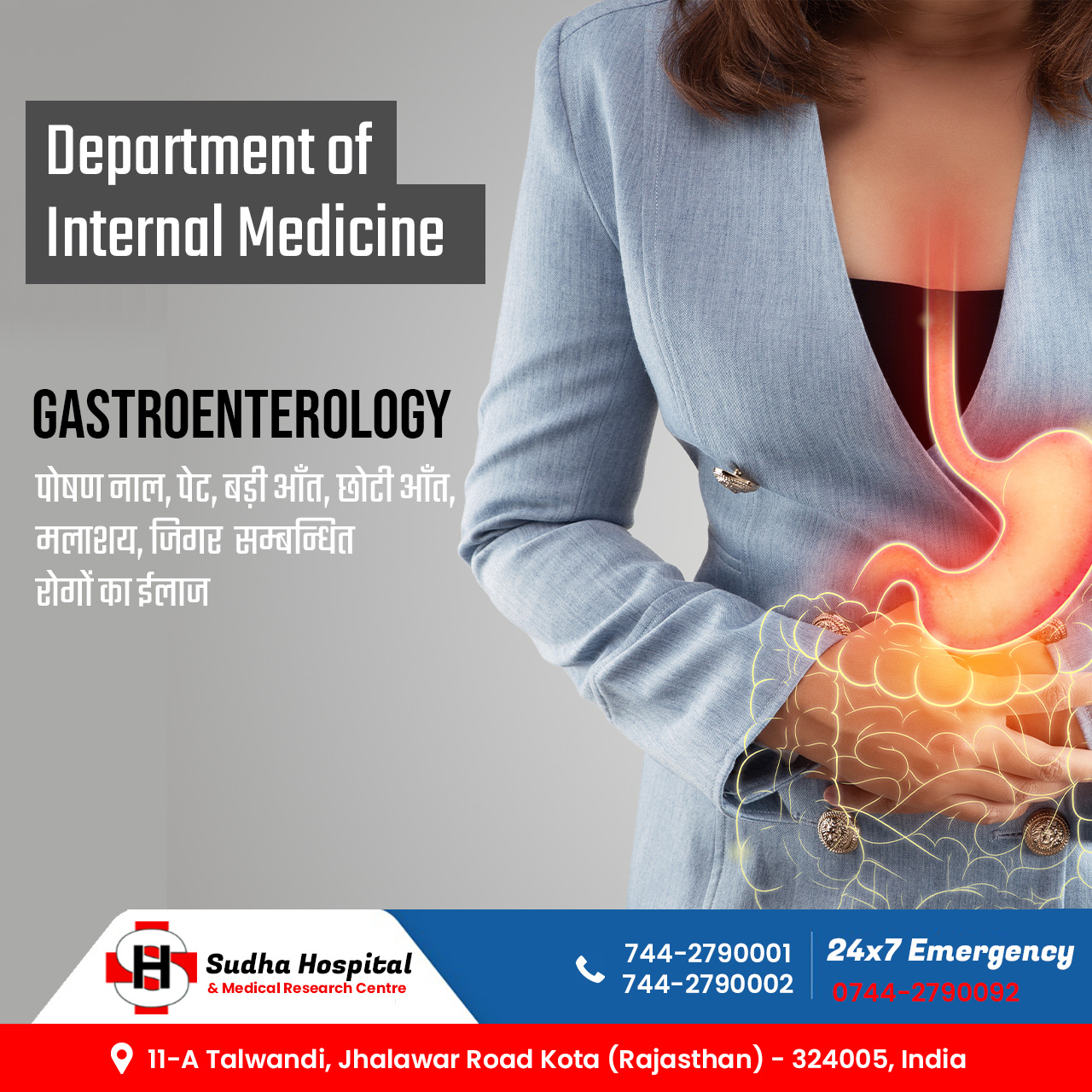
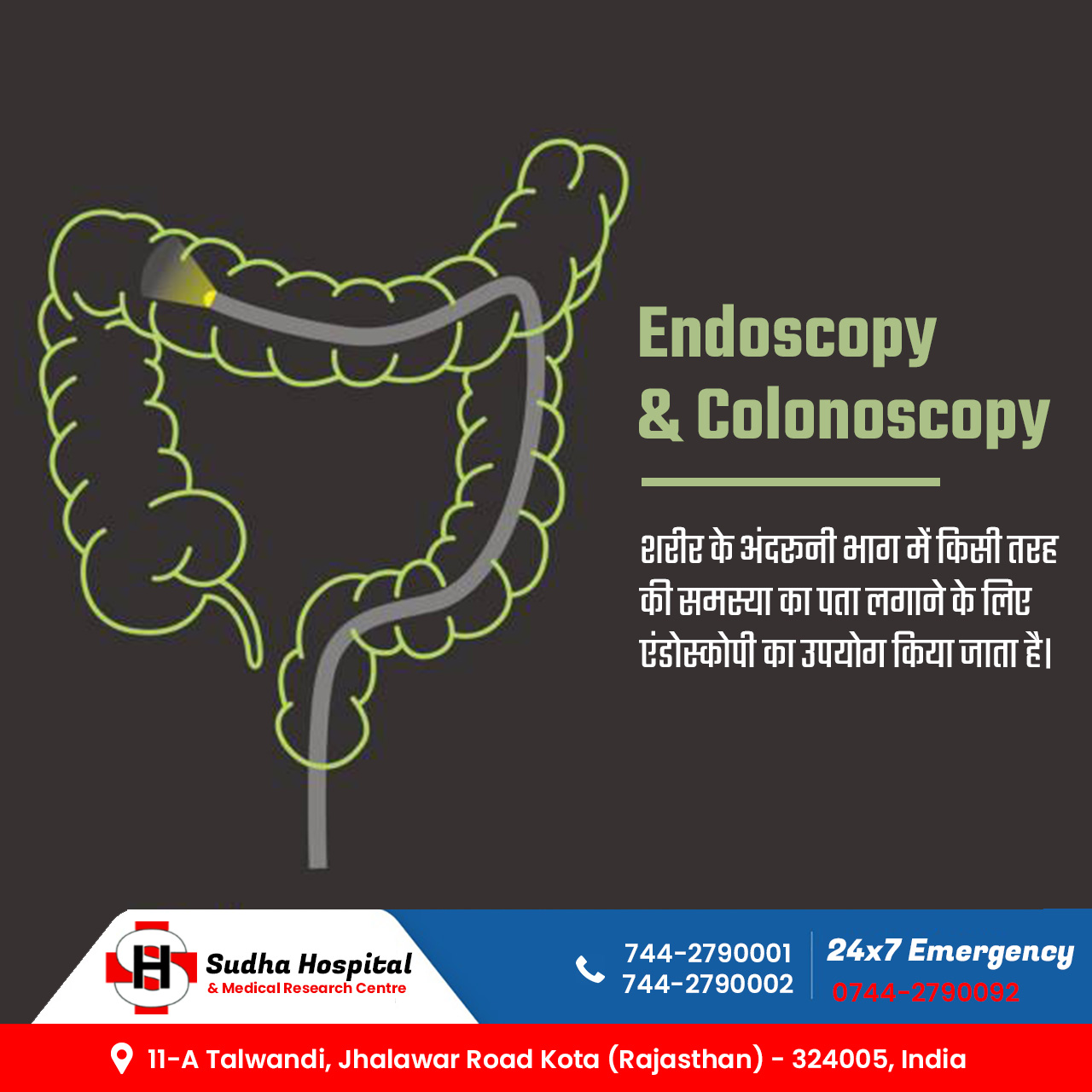
Endoscopy in Kota
व्यक्ति के अधिक बीमार पड़ने पर चिकिस्तक दवा की खुराक तो देते है, किंतु अत्यधिक समस्या होने पर व्यक्ति को अक्सर जांच करवाने की सलाह दी जाती है। ऐसा इसलिए शरीर के बाहरी भाग को अच्छे से देख सकते है, लेकिन अंदरूनी भाग को देखने के लिए विशेष जांच की आवश्कयता पड़ती है। आपको बता दे, एंडोस्कोपी एक ऐसी ही परीक्षण प्रकिया है, जिसमे चिकिस्तक इस उपकरण की मदद से शरीर के भीतरी अंगो और वाहिकाओं को देखते है। शरीर के भीतरी अंगो को स्पष्ट से देखने के लिए इस उपकरण का उपयोग किया जाता है। इस उपकरण की विशेषता है शरीर में बिना किसी कट लगाए भीतर के अंगो को देखा जा सकता हैं।
एंडोस्कोपी क्यों किया जाता हैं ? (What are the Purpose of Endoscopy in Hindi)
व्यक्ति की अंदरूनी गंभीर समस्याओं को जानने व अन्य स्तिथियो के लिए चिकिस्तक एंडोस्कोपी (Endoscopy Meaning in Hindi) करवाने की सलाह दे सकते है।- जैसे असामान्य लक्षणो को जानने के लिए परीक्षण कर सकते हैं।
- एक्सरे में दिखाई हुई छोटी आंत की समस्या देखने के लिए एंडोस्कोपी उपकरण का उपयोग किया जाता है।
- कोलन कैंसर पर नजर रखने के लिए एंडोस्कोपी उपकरण से जांच की जाती है।
- पेट के अंदर के समस्या को देखने के लिए एंडोस्कोपी का उपयोग करते है।
- पाचन तंत्र जैसी समस्या की पुष्टि करने के लिए एंडोस्कोपी किया जाता है।
- सर्जरी के दौरान किसी ऊतक को कम नुकसान पहुंचा कर चोट को ढूढ़ने के लिए एंडोस्कोपी की सहायता लेते है।
- पेट से संबंधित लक्षणो को जानने के लिए एंडोस्कोपी जांच करते है।










